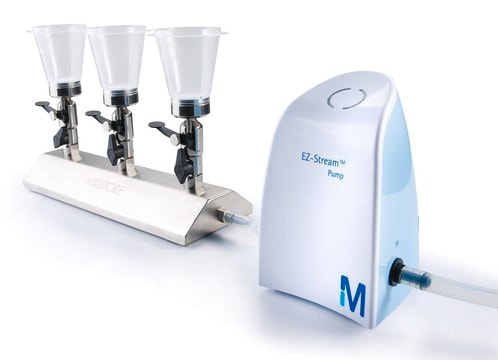W331201
3-(Methylthio)propyl isothiocyanate
≥98%, FG
Synonym(s):
radish isothiocyanate
About This Item
Recommended Products
biological source
synthetic
Quality Level
grade
FG
Halal
Kosher
Agency
meets purity specifications of JECFA
reg. compliance
EU Regulation 1334/2008 & 178/2002
Assay
≥98%
refractive index
n20/D 1.564 (lit.)
bp
254 °C (lit.)
density
1.102 g/mL at 25 °C (lit.)
application(s)
flavors and fragrances
Documentation
see Safety & Documentation for available documents
food allergen
no known allergens
Organoleptic
pungent; vegetable; sulfurous
SMILES string
CSCCCN=C=S
InChI
1S/C5H9NS2/c1-8-4-2-3-6-5-7/h2-4H2,1H3
InChI key
LDKSCZJUIURGMW-UHFFFAOYSA-N
Looking for similar products? Visit Product Comparison Guide
Application
- Functional Chitosan-Based Composite Film Incorporated with 3-(Methylthio) Propyl Isothiocyanate/α-Cyclodextrin Inclusion Complex for Chicken Meat Preservation.: This study explores the development of a functional composite film based on chitosan and incorporating 3-(methylthio) propyl isothiocyanate within an α-cyclodextrin inclusion complex. The composite film demonstrates significant antimicrobial properties, making it highly effective for chicken meat preservation, thereby extending the shelf life and maintaining the quality of meat products (Wu et al., 2022).
Signal Word
Danger
Hazard Statements
Precautionary Statements
Hazard Classifications
Acute Tox. 3 Dermal - Acute Tox. 3 Inhalation - Acute Tox. 3 Oral - Aquatic Acute 1 - Aquatic Chronic 1 - Eye Irrit. 2 - Skin Irrit. 2 - STOT SE 3
Target Organs
Respiratory system
Storage Class Code
6.1C - Combustible acute toxic Cat.3 / toxic compounds or compounds which causing chronic effects
WGK
WGK 3
Flash Point(F)
187.9 °F
Flash Point(C)
86.6 °C
Choose from one of the most recent versions:
Already Own This Product?
Find documentation for the products that you have recently purchased in the Document Library.
Our team of scientists has experience in all areas of research including Life Science, Material Science, Chemical Synthesis, Chromatography, Analytical and many others.
Contact Technical Service







